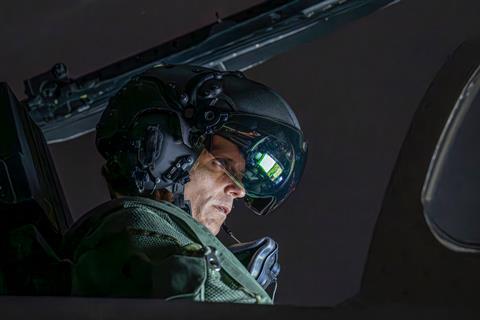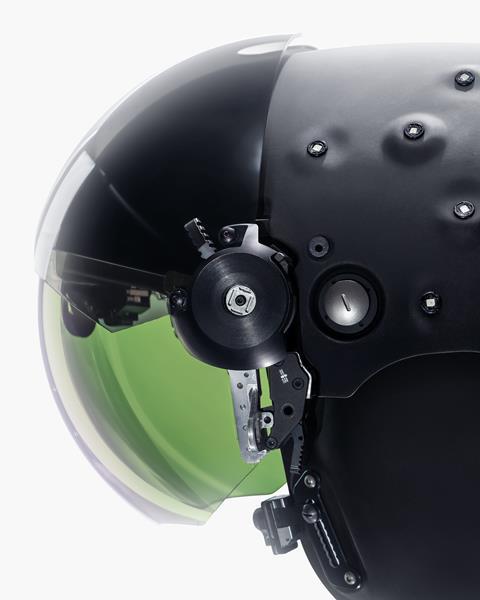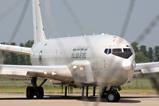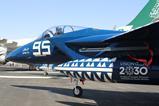The four-nation Eurofighter consortium has awarded BAE Systems a contract worth £133 million ($169 million) to conduct further development work on its Striker II helmet-mounted display system.
Announced on 11 December, the deal is expected to lead to the technology being adopted by the air forces of Germany and Italy, with the UK having already signed a £40 million development deal in September 2023.
“Under the new contract, BAE Systems engineers will continue to mature the helmet’s capability alongside a programme of flight testing,” the UK company says.

“By signing the contract, both Germany and Italy are joining a development initiative by Great Britain to procure and integrate a new pilot helmet system for the Eurofighter,” Germany’s BAAINBw procurement body says.
Valuing Berlin’s contribution as worth around €63 million ($66 million), it states: “This means that three of the four [Eurofighter partner] user countries intend to use the Striker II helmet system in the future. Only Spain is currently considering an alternative solution.
“Completion of the development and integration work is scheduled for 2027, so that the procurement of the new helmet systems can follow immediately thereafter,” the BAAINBw says. Operational use of the Striker II by the Luftwaffe is anticipated from 2028, it adds.
“The contract to further develop Striker II’s capabilities will ensure that the Eurofighter remains cutting edge and at the forefront of innovation,” says Simon Ellard, general manager of the NATO Eurofighter and Tornado Management Agency.
Eurofighter chief executive Giancarlo Mezzanatto, meanwhile, describes the development as “great news for the programme, as the international commitment to the development of the helmet will provide full synergies across our [partner] air forces”.

BAE describes its Striker II as “one of the world’s most advanced fighter aircraft helmets”, thanks to its combination of a “daylight-readable colour display and integrated night vision”.
Noting that flight trials are due to commence “in the coming months” via its earlier contract with the UK Ministry of Defence, BAE says: “The latest investment will fund the next stage of development, ensuring the helmet achieves a production-ready standard.”
The company expects the work to “secure more than 200 highly skilled jobs” at its sites in Rochester, Kent, and Warton, Lancashire.































